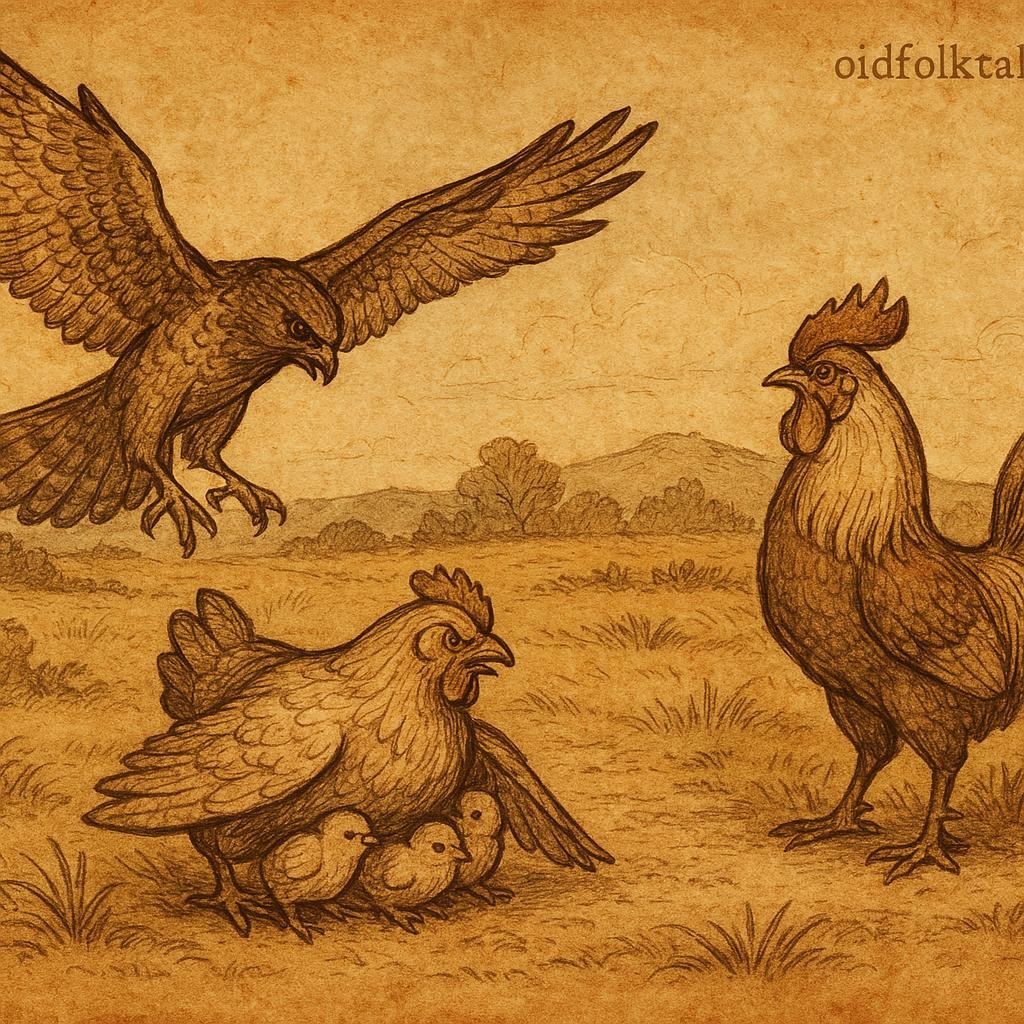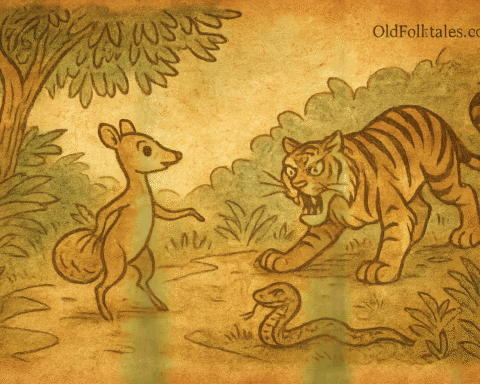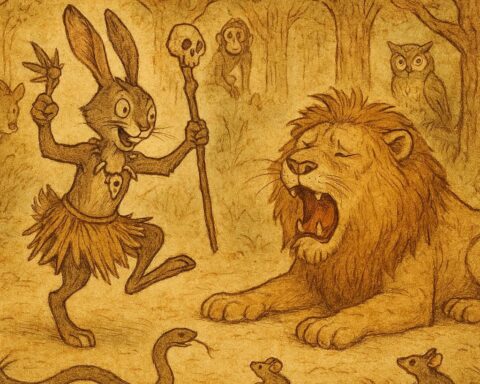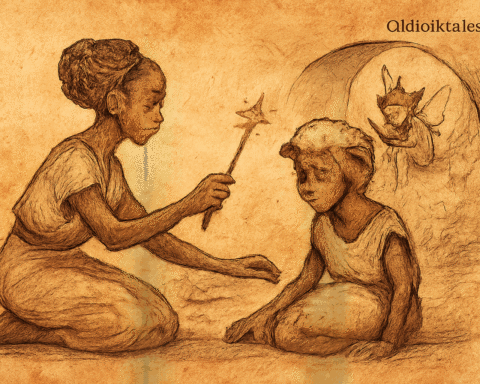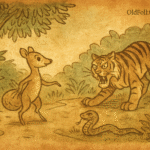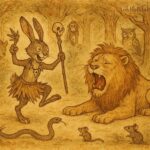Once upon a time, in the open plains where the tall grasses swayed with the wind, a hawk and a hen struck up an unusual friendship. The hawk, with his piercing eyes and swift wings, admired the hen for her gentle ways. In time, the hawk’s admiration grew into desire, and he asked the hen to be his wife.
But the hen, already married to the proud cock, hesitated. She feared the hawk’s temper and strength, so she chose her words carefully. “I cannot be your wife,” she said softly, “for I already belong to the cock.”
The hawk’s eyes darkened, and his wings beat against the sky with fury. “If you refuse me,” he thundered, “I will kill all your children, every chick that dares wander in the open fields.”
Terrified, the hen trembled before him. To save herself and her young, she devised a cunning excuse. “I will marry you,” she said, “but first my head must be shaved clean, and I must wait until my feathers grow again before the wedding can happen.”
The hawk, proud and confident, agreed to wait. He soared away into the skies, certain that the hen would return when her head was once more crowned with feathers.
But the hen had no intention of keeping her word. She returned to her cock and raised her chicks under his protection, hoping the hawk would forget.
Time passed, and the hawk remembered his promise. He descended from the skies to claim his bride, only to find the hen living happily with the cock. Rage burned within him. “You have deceived me,” he cried, “and for this betrayal, I will take vengeance. From this day forth, I will kill every one of your children whenever I find them.”
And so it has been from that time until now: whenever a hawk spots a chicken wandering in the open, he swoops down without mercy.
Moral of the Story
This folktale reminds us that promises should never be made lightly. Broken promises can lead to pain, loss, and consequences that last for generations. The hen’s deception to escape her problem did not end her troubles it passed them on to her children. In life, honesty and courage are better than deceit, for truth may sting for a moment, but lies can wound forever.
Knowledge Check
1. Why do hawks kill chickens according to African folktales?
Because of a broken promise between a hen and a hawk, the hawk vowed to kill the hen’s children forever.
2. What is the moral lesson of the hawk and hen story?
It teaches that people should not make promises they cannot keep, as dishonesty leads to lasting consequences.
3. What cultural origin does the hawk and hen folktale come from?
It is an African folktale, told across generations in rural communities to explain natural behaviors and teach moral lessons.
4. How does the folktale explain the conflict between hawks and chickens?
It provides a symbolic explanation, portraying the hawk’s attacks as a result of anger and betrayal rather than mere hunting instinct.
5. Why did the hen deceive the hawk?
She feared the hawk’s threats and tried to escape by stalling with an impossible condition, hoping never to marry him.
6. What is the focus keyword of this folktale?
Hawk
Cultural Origin
This story is rooted in West African oral tradition, often told by elders to explain the natural enmity between hawks and chickens while also teaching lessons about truth and responsibility.
